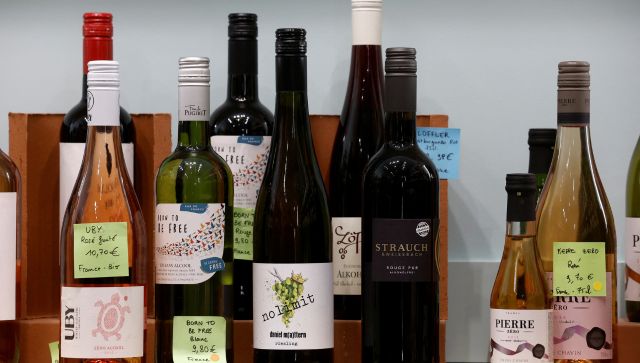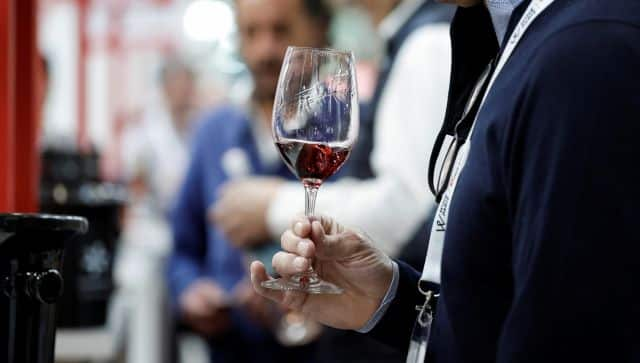France will spend millions of euros to destroy excess wine. Renowned for its fine wine, the European country is now battling an overproduction problem. The European Union earlier provided €160 million (about Rs 14 billion) in funds to France to destroy its surplus wine. Adding to the fund, the French government has decided to spend a total of €200 million (about Rs 17 billion) to destroy surplus wine and support producers, reported Paris-headquartered news agency AFP. But why is France compelled to get rid of its surplus wine? Let’s take a closer look. Myriad problems As per the AFP report, France’s major wine-producing regions, especially the Bordeaux area, are dealing with a number of issues, including a change in consumption habits and the cost of living crisis. The impact of the COVID-19 pandemic is also increasing the woes of the wine industry. As the restaurants and bars were closed worldwide, it triggered a sharp fall in sales of wine, reported AFP. European Commission data shows that this year wine consumption has plummeted 7 per cent in Italy, 10 per cent in Spain, 15 per cent in France, 22 per cent in Germany and 34 per cent in Portugal, BBC reported. However, wine production across the EU bloc rose by 4 per cent in this period. According to Statista, France has witnessed a 25 per cent fall in wine consumption between 2005 and 2021. While the demand for wine has fallen in France, consumers are spending on other beverages, such as non-alcoholic drinks and craft beer. France has one of the fastest-growing markets in non-alcoholic drinks globally, The Guardian reported last year. Susie Goldspink of IWSR Drinks Market Analysis told the UK newspaper that in 2021 about “14 per cent of consumers said they were abstainers, whereas this year it was up to 20 per cent. Abstainers in France are more likely than in other markets to be from the youngest age group, Generation Z”. [caption id=“attachment_13042662” align=“alignnone” width=“640”] Younger people in France are switching to non-alcoholic beverages. Reuters (Representational Image)[/caption] In June, Bloomberg reported that people in Europe are drinking less wine amid surging food and drink prices, which has created a “serious loss of income,” particularly for rosé and red wine producers in France, Spain and Portugal. A jump in global energy prices following Russia’s invasion of Ukraine has led to a hike in prices of food and fuel, resulting in buyers avoiding spending on non-essential goods like wine, noted French news agency AFP. ALSO READ:
Red Alert: What is making Germans buy less wine?
What is the French government doing? As demand for wine decreases, it has led to overproduction and a fall in prices. “We’re producing too much, and the sale price is below the production price, so we’re losing money,” Jean-Philippe Granier, from the Languedoc wine producers’ association, told the French news agency. Speaking to reporters, French agriculture minister, Marc Fesneau, said on Friday (25 August) that the fund was “aimed at stopping prices collapsing and so that winemakers can find sources of revenue again”. He emphasised that the wine industry needed to “look to the future, think about consumer changes … and adapt”, the report added. [caption id=“attachment_13042672” align=“alignnone” width=“640”]
Younger people in France are switching to non-alcoholic beverages. Reuters (Representational Image)[/caption] In June, Bloomberg reported that people in Europe are drinking less wine amid surging food and drink prices, which has created a “serious loss of income,” particularly for rosé and red wine producers in France, Spain and Portugal. A jump in global energy prices following Russia’s invasion of Ukraine has led to a hike in prices of food and fuel, resulting in buyers avoiding spending on non-essential goods like wine, noted French news agency AFP. ALSO READ:
Red Alert: What is making Germans buy less wine?
What is the French government doing? As demand for wine decreases, it has led to overproduction and a fall in prices. “We’re producing too much, and the sale price is below the production price, so we’re losing money,” Jean-Philippe Granier, from the Languedoc wine producers’ association, told the French news agency. Speaking to reporters, French agriculture minister, Marc Fesneau, said on Friday (25 August) that the fund was “aimed at stopping prices collapsing and so that winemakers can find sources of revenue again”. He emphasised that the wine industry needed to “look to the future, think about consumer changes … and adapt”, the report added. [caption id=“attachment_13042672” align=“alignnone” width=“640”] France is globally renowned for its fine wine. Reuters (Representational Image)[/caption] The alcohol derived from the destroyed wine can be sold for making non-food products such as hand sanitiser, cleaning products and perfume, as per AFP. To tackle the problem of overproduction, the ministry is providing funds for grape growers to shift to other products, such as olives. ALSO READ:
Please drink! Why Japan is urging its sober, young people to hit the bottle
Heatwave affects winegrowers Earlier this week, France issued a red alert for the south of France. The recent spell of heatwave has sent temperatures soaring in several parts of the country. These extreme temperatures have hurt vines in southern France which could reduce the wine output, as per Reuters. However, a winemaker who has a vineyard in Valvigneres in the Ardeche region told Reuters that the soaring temperatures could produce a vintage of “exceptional” quality. “This year we are on a late concentration which will raise the quality of the grapes, and therefore the cost of the wine, as the smoothness and aromas which will emerge will make a rather exceptional wine for the 2023 vintage,” Jerome Volle, who represents Ardeche winemakers, said. With inputs from agencies
France is globally renowned for its fine wine. Reuters (Representational Image)[/caption] The alcohol derived from the destroyed wine can be sold for making non-food products such as hand sanitiser, cleaning products and perfume, as per AFP. To tackle the problem of overproduction, the ministry is providing funds for grape growers to shift to other products, such as olives. ALSO READ:
Please drink! Why Japan is urging its sober, young people to hit the bottle
Heatwave affects winegrowers Earlier this week, France issued a red alert for the south of France. The recent spell of heatwave has sent temperatures soaring in several parts of the country. These extreme temperatures have hurt vines in southern France which could reduce the wine output, as per Reuters. However, a winemaker who has a vineyard in Valvigneres in the Ardeche region told Reuters that the soaring temperatures could produce a vintage of “exceptional” quality. “This year we are on a late concentration which will raise the quality of the grapes, and therefore the cost of the wine, as the smoothness and aromas which will emerge will make a rather exceptional wine for the 2023 vintage,” Jerome Volle, who represents Ardeche winemakers, said. With inputs from agencies
Why France will spend millions of euros to destroy wine
FP Explainers
• August 26, 2023, 15:26:30 IST
The French government has allocated €200 million to destroy surplus wine and support producers. As the demand for the alcoholic drink has fallen due to various reasons, it has led to overproduction and a decrease in prices
Advertisement
)
End of Article